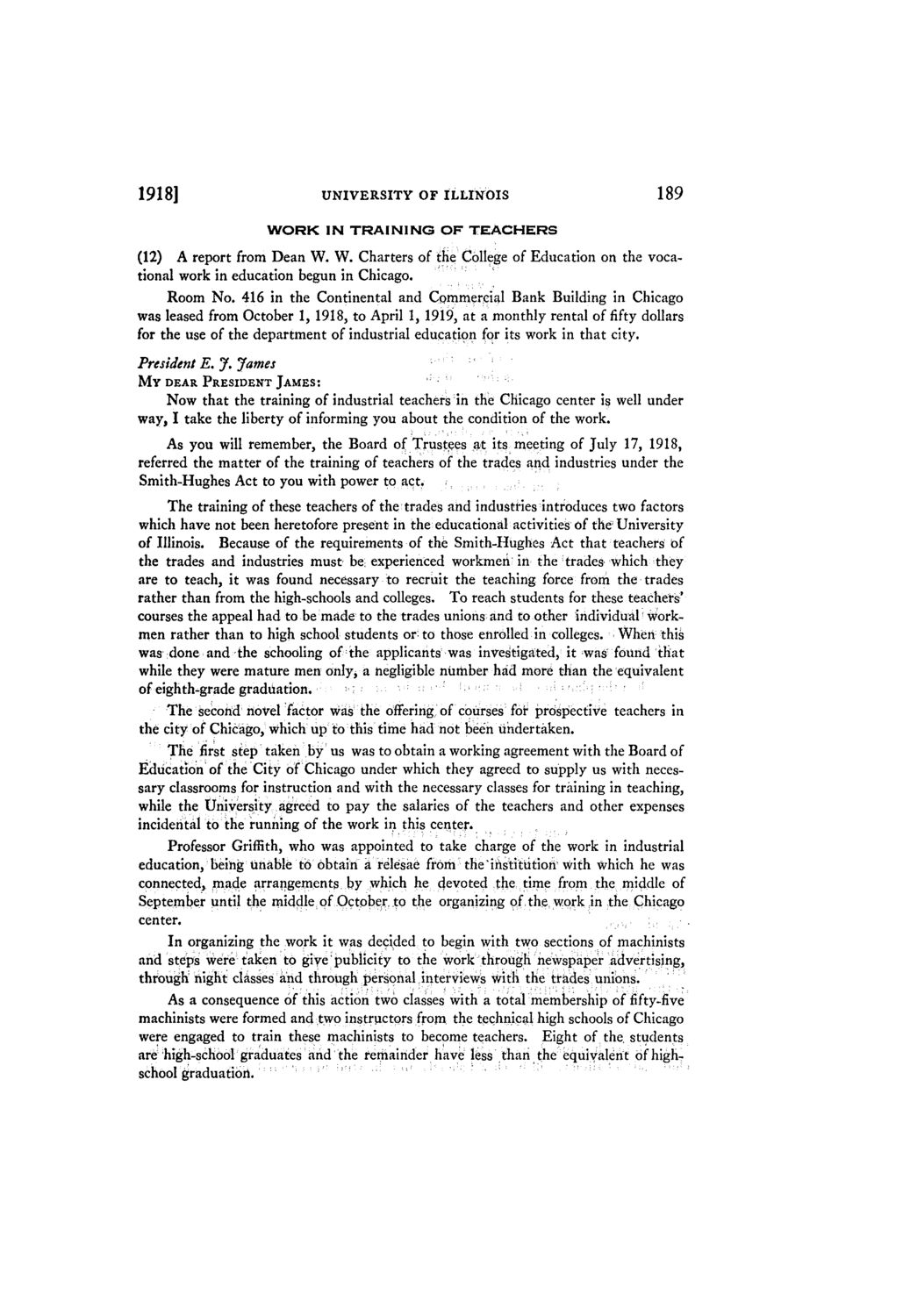| |
| |
Caption: Board of Trustees Minutes - 1920
This is a reduced-resolution page image for fast online browsing.

EXTRACTED TEXT FROM PAGE:
1918] UNIVERSITY OF ILLINOIS WORK IN TRAINING OF T E A C H E R S 189 (12) A report from Dean W. W. Charters of the College of Education on the vocational work in education begun in Chicago. Room No. 416 in the Continental and Commercial Bank Building in Chicago was leased from October 1, 1918, to April 1, 1919, at a monthly rental of fifty dollars for the use of the department of industrial education for its work in that city. President E.J. James M Y DEAR PRESIDENT JAMES: Now that the training of industrial teachers in the Chicago center is well under way, I take the liberty of informing you about the condition of the work. As you will remember, the Board of Trustees at its meeting of July 17, 1918, referred the matter of the training of teachers of the trades and industries under the Smith-Hughes Act to you with power to act. The training of these teachers of the trades and industries introduces two factors which have not been heretofore present in the educational activities of the'University of Illinois. Because of the requirements of the Smith-Hughes Act that teachers of the trades and industries must be; experienced workmen in the trades which they are to teach, it was found necessary to recruit the teaching force from the trades rather than from the high-schools and colleges. To reach students for these teachers' courses the appeal had to be made to the trades unions and to other individual workmen rather than to high school students or to those enrolled in colleges. When this was done and the schooling of the applicants was investigated, it was found that while they were mature men only^ a negligible number had more than the equivalent of eighth-grade graduation. The second novel factor was the offering, of courses for prospective teachers in the city of Chicago, which up to this time had not been undertaken. The first step taken by us was to obtain a working agreement with the Board of Education of the City of Chicago under which they agreed to supply us with necessary classrooms for instruction and with the necessary classes for training in teaching, while the University agreed to pay the salaries of the teachers and other expenses incidental to the running of the work in this center. Professor Griffith, who was appointed to take charge of the work in industrial education, being unable t6 obtain k relesae from the'institution with which he was connected^ made arrangements by which he devoted the time from die middle of September until the middle of October, to the organizing of the work in the Chicago center. In organizing the work it was decided to begin with two sections of machinists and steps were taken to giye publicity to the work through newspaper advertising, through night classes and through personal interviews with the trades unions. As a consequence of this action two classes with a 'total'membership of fifty-five machinists were formed and two instructors from the technical high schools of Chicago were engaged to train these machinists to become teachers. Eight of the, students are high-school graduates arid the remainder have less than the equiyalent of highschool graduation.
| |